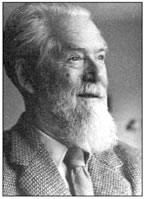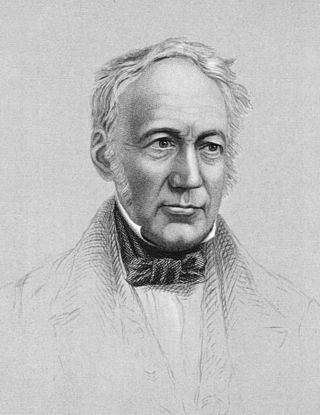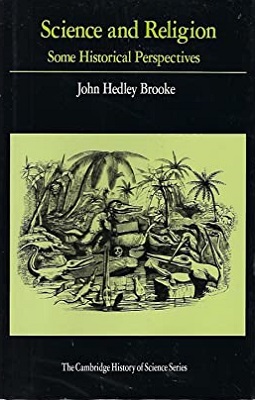Related Research Articles

Michael Faraday was an English scientist who contributed to the study of electromagnetism and electrochemistry. His main discoveries include the principles underlying electromagnetic induction, diamagnetism and electrolysis. Although Faraday received little formal education, as a self-made man, he was one of the most influential scientists in history. It was by his research on the magnetic field around a conductor carrying a direct current that Faraday established the concept of the electromagnetic field in physics. Faraday also established that magnetism could affect rays of light and that there was an underlying relationship between the two phenomena. He similarly discovered the principles of electromagnetic induction, diamagnetism, and the laws of electrolysis. His inventions of electromagnetic rotary devices formed the foundation of electric motor technology, and it was largely due to his efforts that electricity became practical for use in technology.
Natural theology, once also termed physico-theology, is a type of theology that seeks to provide arguments for theological topics based on reason and the discoveries of science, the project of arguing for the existence of God on the basis of observed natural facts, and through natural phenomena viewed as divine, or complexities of nature seen as evidence of a divine plan or Will of God, which includes nature itself.

John Fiske was an American philosopher and historian. He was heavily influenced by Herbert Spencer and applied Spencer's concepts of evolution to his own writings on linguistics, philosophy, religion, and history.
The Gifford Lectures are an annual series of lectures which were established in 1887 by the will of Adam Gifford, Lord Gifford at the four ancient universities of Scotland: St Andrews, Glasgow, Aberdeen and Edinburgh. Their purpose is to "promote and diffuse the study of natural theology in the widest sense of the term – in other words, the knowledge of God." A Gifford lectures appointment is one of the most prestigious honours in Scottish academia.

The Glasites or Glassites were a small Christian church founded in about 1730 in Scotland by John Glas. Glas's faith, as part of the First Great Awakening, was spread by his son-in-law Robert Sandeman into England and America, where the members were called Sandemanians.
The Boyle Lectures are named after Robert Boyle, a prominent natural philosopher of the 17th century and son of Richard Boyle, 1st Earl of Cork. Under the terms of his Will, Robert Boyle endowed a series of lectures or sermons which were to consider the relationship between Christianity and the new natural philosophy then emerging in European society. Since 2004, this prestigious Lectures series has been organized, with the assistance of Board of the Boyle Lectures, by the International Society for Science and Religion (ISSR) and has been held at one of its original locations, the Wren church of St Mary-le-Bow on Cheapside in the City of London.

John Macmurray was a Scottish philosopher. His thought both moved beyond and was critical of the modern tradition, whether rationalist or empiricist. His thought may be classified as personalist, as his writings focused primarily on the nature of human beings. He viewed persons in terms of their relationality and agency, rather than the modern tendency to characterize them in terms of individualism and cognition.
Simon Conway Morris is an English palaeontologist, evolutionary biologist, and astrobiologist known for his study of the fossils of the Burgess Shale and the Cambrian explosion. The results of these discoveries were celebrated in Stephen Jay Gould's 1989 book Wonderful Life. Conway Morris's own book on the subject, The Crucible of Creation (1998), however, is critical of Gould's presentation and interpretation.

Andrew Ure FRS was a Scottish physician, chemist, scriptural geologist, and early business theorist who founded the Garnet Hill Observatory. He was a fellow of the Royal Astronomical Society and the Royal Society. Ure published a number of books based on his industrial consulting experiences.
Robert James "Sam" Berry was a British geneticist, naturalist and Christian theorist. He was professor of genetics at University College London between 1974 and 2000. Before that he was a lecturer in genetics at The Royal Free Hospital School of Medicine in London. He was president from 1983 to 1986 of the Linnean Society, the British Ecological Society and the European Ecological Federation. As a Christian, Berry spoke out in favour of theistic evolution, served as a lay member of the Church of England's General Synod and as president of Christians in Science. He was a member of the Board of Governors of Monkton Combe School from 1979 to 1991. He gave the 1997–98 Glasgow Gifford Lectures entitled Gods, Genes, Greens and Everything. His father, A. J. Berry, died in 1947.

Dr. Denis Alexander has spent 40 years in the biomedical research community. He is an Emeritus Fellow of St. Edmund’s College, Cambridge and an Emeritus Director of the Faraday Institute for Science and Religion, Cambridge which he co-founded with Bob White in 2006.

John Hedley Brooke is a British historian of science specialising in the relationship between science and religion.
Reijer Hooykaas was a Dutch historian of science. He along with Eduard Jan Dijksterhuis were pioneers in professionalizing the history of science in the Netherlands. Hooykaas gave the prestigious Gifford Lectures at St. Andrews in 1975-77. H. Floris Cohen dedicated his historiographical text The Scientific Revolution to Hooykaas; its section on religion deals primarily with Hooykaas.

The Christian Virtuoso (1690) was one of the last books published by Robert Boyle, who was a champion of his Anglican faith. This book summarised his religious views including his idea of a clockwork universe created by God. Boyle was a devout Anglican, and with the rise of science and reason during his lifetime, was troubled by increasing atheism. This spurred him to write about his belief of science and religion supporting each other.

Science and Religion: Some Historical Perspectives is a book on the relationship between religion and science by John Hedley Brooke.
The Centre for History and Philosophy of Science is a research centre devoted to the historical and philosophical study of science, technology and medicine, based in the School of Philosophy, Religion and History of Science, at the University of Leeds in West Yorkshire, England. The Centre – previously known as the Division of History and Philosophy of Science, which was founded in 1956 – is one of the oldest units of its kind in the world. Throughout its history, the Centre has been home to many of the leading historians and philosophers of science who have deepened our understanding of scientific activity and how it shapes and is shaped by wider society.
Scriptural geologists were a heterogeneous group of writers in the early nineteenth century, who claimed "the primacy of literalistic biblical exegesis" and a short Young Earth time-scale. Their views were marginalised and ignored by the scientific community of their time. They "had much the same relationship to 'philosophical' geologists as their indirect descendants, the twentieth-century creationists." Paul Wood describes them as "mostly Anglican evangelicals" with "no institutional focus and little sense of commonality". They generally lacked any background in geology, and had little influence even in church circles.

Most scientific and technical innovations prior to the Scientific Revolution were achieved by societies organized by religious traditions. Ancient Christian scholars pioneered individual elements of the scientific method. Historically, Christianity has been and still is a patron of sciences. It has been prolific in the foundation of schools, universities and hospitals, and many Christian clergy have been active in the sciences and have made significant contributions to the development of science.

The Leisure Hour was a British general-interest periodical of the Victorian era published weekly from 1852 to 1905. It was the most successful of several popular magazines published by the Religious Tract Society, which produced Christian literature for a wide audience. Each issue mixed multiple genres of fiction and factual stories, historical and topical.
References
- ↑ Prof Geoffrey Cantor, The Royal Institution of Great Britain, 2005, archived from the original on 25 June 2010
- ↑ Geoffrey Cantor, Gifford Lectures Online, archived from the original on 8 March 2008
- ↑ Punchlines: from wit to wisdom, The Royal Institution of Great Britain, 25 January 2005, archived from the original on 12 June 2011